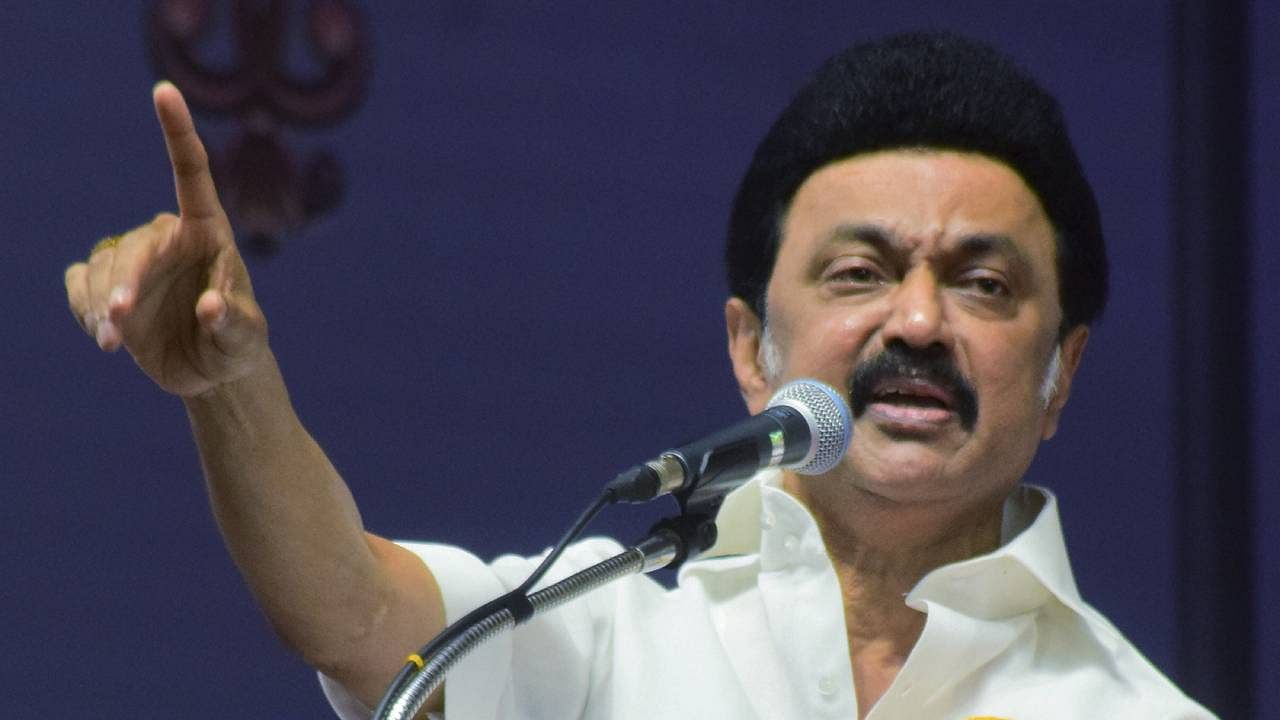
Pointing to the recent archaeological excavations that have thrown up evidence of urban settlements having existed in the state at least 2,600 years ago, Tamil Nadu Chief Minister M K Stalin on Tuesday said it will be apt to “rewrite” the history of the Indian subcontinent from the Tamil landscape.
In his address at the 81st Indian History Congress here, he scoffed at “blatant attempts” made to “communalise and distort history” and said it is befitting that such an event was being held in Tamil Nadu the “land of resistance and rationality.”
Contending that history should not be a document that talks only about kings, their lifestyle and victories, but should also reflect people from all walks of life, Stalin pushed the need to write “real history” and not ones that are “distorted.”
“Tamil Nadu has a rich past and history. We are in love with our past, but we are not conservative. We speak about our rich historical past based on scientific evidence,” Stalin said and spoke about excavations in Keeladi, Alagankulam, Korkai, Sivagalai, Adichanallur, Kodumanal, Mayiladumparai, and Gangaikondacholapuram.
The artefacts found in Keeladi have established that an urban settlement which was literate existed in 600 BCE on the banks of Vaigai near the present-day Madurai, and rice husks found from a burial urn in Sivagalai dates back to 3,200 years old, Stalin said.
Also Read | TN Assembly to convene on January 9
“These have been established through scientific methods and we are taking the help of institutes from across the country in this effort…We firmly believe that it will be apt to write the history of the Indian subcontinent from the Tamil landscape. The DMK government is functioning as one that reclaims the past glory of Tamils,” Stalin added.
The Chief Minister also said the government was constructing a grand museum at Keeladi to showcase over 11,000 artefacts that have been unearthed since 2017. DH had on December 27 reported in detail about the museum being built in traditional Chettinad-style architecture.
The government is also establishing a museum in Gangaikondacholapuram, once the capital of the famed Chola kingdom, and in Tirunelveli on the Porunai settlements. “We consider as our top priority to take the real history based on research to the people. The excavations have created a huge buzz among the people of Tamil Nadu. These are based on scientific evidence,” Stalin added.
The excavations in Keeladi have created a huge buzz as carbon dating of artefacts found in the fourth phase show they belong to 600 BCE, pushing the Sangam Era behind by three centuries than it was thought and making it contemporaneous with the Gangetic Plains Civilization of north India.
Detailed analyses of plants and soil from Keeladi have also shown that surplus production of rice in the area might have paved the way for increase in trade 2,000 years ago.
The ASI is also in the process of completing its report on the first two phases of the excavation – it backed out after the third phase following which the Madras High Court asked the TNSDA to take over the excavations.